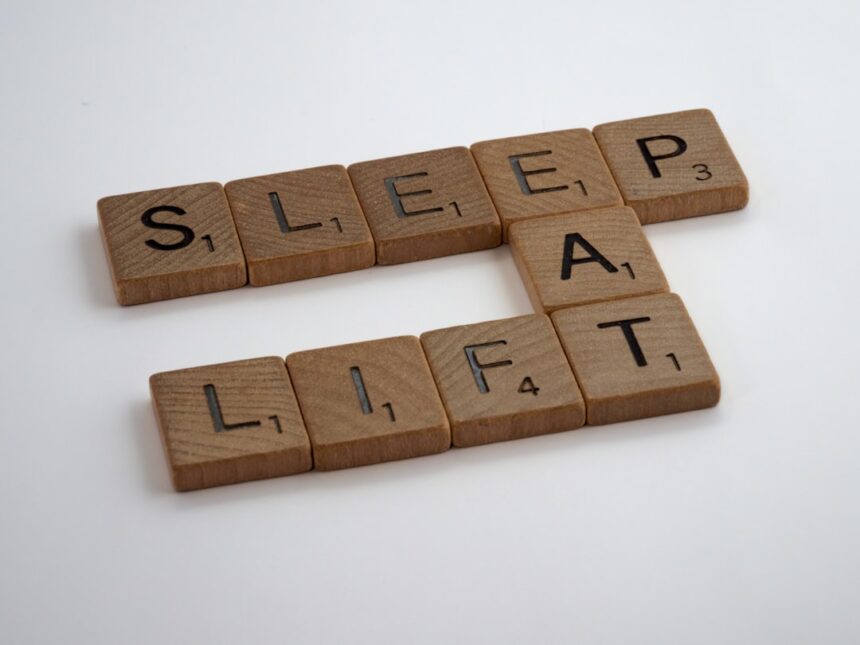Sleep inertia is a phenomenon that many people experience but may not fully understand. It refers to the groggy, disoriented feeling you often have upon waking, particularly after a deep sleep. This state can last anywhere from a few minutes to several hours, during which your cognitive functions and physical abilities may be significantly impaired.
You might find it challenging to think clearly, make decisions, or even perform simple tasks. This transitional period between sleep and wakefulness can be frustrating, especially if you need to jump into your daily responsibilities immediately. The experience of sleep inertia can vary widely among individuals.
Some may feel a mild sense of drowsiness, while others might struggle to shake off a heavy fog that clouds their thoughts. This phenomenon is not merely an inconvenience; it has real implications for your daily life, affecting everything from your productivity at work to your safety while driving. Understanding sleep inertia is crucial for anyone looking to optimize their waking hours and improve overall well-being.
Key Takeaways
- Sleep inertia is the feeling of grogginess and disorientation that occurs upon waking from deep sleep
- Causes of sleep inertia include waking up during the body’s natural sleep cycle, sleep deprivation, and certain medications
- Sleep inertia can impair cognitive function, including memory, reaction time, and decision-making
- Sleep inertia can also negatively impact physical performance, leading to decreased coordination and increased risk of accidents
- Minimizing the effects of sleep inertia can be achieved through consistent sleep schedules, strategic napping, and exposure to natural light in the morning
The Causes of Sleep Inertia
Several factors contribute to the onset of sleep inertia, with the most significant being the stage of sleep from which you awaken. If you wake up during deep sleep, also known as slow-wave sleep, you are more likely to experience pronounced sleep inertia. This is because your brain is still in a state of low activity, making the transition to full wakefulness more challenging.
Conversely, waking from lighter stages of sleep, such as REM sleep or stage 1 sleep, typically results in less pronounced feelings of grogginess. Another contributing factor is the duration of your sleep. If you have had insufficient rest or have disrupted your sleep cycle, you may find that sleep inertia is more severe.
Sleep deprivation can lead to a cumulative effect, making it harder for your body to transition smoothly from sleep to wakefulness. Additionally, external factors such as noise, light, and temperature can also play a role in how you feel upon waking. Understanding these causes can help you take proactive steps to mitigate the effects of sleep inertia.
The Effects of Sleep Inertia on Cognitive Function

The cognitive effects of sleep inertia can be quite profound. When you wake up feeling groggy, your ability to think clearly and process information is often compromised. You may find it difficult to concentrate on tasks or make decisions, which can be particularly problematic if you have important responsibilities awaiting you.
Research has shown that cognitive performance can be significantly impaired during the initial moments after waking, leading to slower reaction times and decreased problem-solving abilities. Moreover, the impact of sleep inertia on cognitive function can extend beyond just the immediate aftermath of waking. If you struggle with grogginess for an extended period, it can affect your overall productivity throughout the day.
You might find yourself making more mistakes or taking longer to complete tasks, which can lead to frustration and decreased motivation. Recognizing how sleep inertia affects your cognitive abilities can help you plan your mornings more effectively and implement strategies to combat its effects.
The Impact of Sleep Inertia on Physical Performance
| Study | Participants | Duration of Sleep Inertia | Impact on Physical Performance |
|---|---|---|---|
| Study 1 | 20 athletes | 10 minutes | Decreased reaction time and agility |
| Study 2 | 30 adults | 15 minutes | Reduced strength and endurance |
| Study 3 | 25 students | 20 minutes | Impaired coordination and balance |
Just as sleep inertia affects cognitive function, it also has significant implications for physical performance. When you wake up feeling sluggish and disoriented, your body may not respond as quickly or efficiently as it normally would. This can be particularly concerning for athletes or individuals who engage in physical activities that require coordination and quick reflexes.
The initial moments after waking can lead to decreased strength and slower reaction times, which can hinder performance in sports or exercise routines. Additionally, the effects of sleep inertia on physical performance can pose safety risks. If you engage in activities that require alertness and coordination—such as driving or operating machinery—feeling groggy can increase the likelihood of accidents or injuries.
Understanding the relationship between sleep inertia and physical performance is essential for anyone looking to maintain an active lifestyle or ensure their safety in daily activities.
How to Minimize the Effects of Sleep Inertia
Minimizing the effects of sleep inertia involves a combination of good sleep hygiene practices and strategic waking techniques. One effective approach is to establish a consistent sleep schedule that allows for adequate rest each night. By going to bed and waking up at the same time every day, you can help regulate your body’s internal clock and improve the quality of your sleep.
This consistency can make it easier for you to wake up feeling refreshed rather than groggy. Another strategy is to consider your waking environment. Exposure to natural light upon waking can help signal to your body that it’s time to be alert.
Opening curtains or stepping outside for a few minutes can make a significant difference in how quickly you shake off that morning fog. Additionally, engaging in light physical activity—such as stretching or a short walk—can stimulate blood flow and help you feel more awake. Implementing these strategies can significantly reduce the impact of sleep inertia on your daily life.
The Role of Circadian Rhythms in Sleep Inertia

Circadian rhythms play a crucial role in regulating your sleep-wake cycle and can significantly influence the experience of sleep inertia.
When your circadian rhythms are aligned with your sleep schedule, you are more likely to wake up feeling refreshed and alert.
However, disruptions to these rhythms—such as irregular sleeping patterns or exposure to artificial light at night—can exacerbate feelings of grogginess upon waking. Understanding your circadian rhythms can empower you to make choices that enhance your overall well-being. For instance, if you know that you are naturally inclined to feel more alert in the morning, you might prioritize important tasks during that time.
Conversely, if you’re more of a night owl, adjusting your schedule to accommodate your natural tendencies could help minimize feelings of sleep inertia when you wake up early.
Sleep Inertia and Shift Work
Shift work presents unique challenges when it comes to managing sleep inertia. Individuals who work non-traditional hours often struggle with irregular sleep patterns that disrupt their circadian rhythms. As a result, they may experience heightened levels of sleep inertia upon waking from daytime naps or after night shifts.
The abrupt transitions between sleeping and working hours can leave them feeling disoriented and fatigued, impacting both their cognitive function and physical performance. To combat these challenges, shift workers can implement strategies such as creating a conducive sleeping environment that mimics nighttime conditions during the day—using blackout curtains and white noise machines can help facilitate better rest. Additionally, taking short naps before shifts may help reduce feelings of grogginess when transitioning back into work mode.
By understanding the unique relationship between shift work and sleep inertia, individuals can take proactive steps to enhance their overall well-being.
Sleep Inertia in Different Age Groups
Sleep inertia does not affect all age groups equally; its intensity and duration can vary significantly across different life stages. For instance, children often experience shorter periods of sleep inertia compared to adults due to their naturally higher energy levels and more robust circadian rhythms. However, as individuals age, they may find that their experience of sleep inertia becomes more pronounced due to changes in sleep architecture and overall health.
Older adults may experience longer-lasting feelings of grogginess upon waking due to factors such as fragmented sleep patterns or underlying health conditions. Understanding how age influences sleep inertia can help tailor strategies for managing its effects effectively across different life stages. For example, older adults might benefit from establishing more structured routines around their sleeping habits to minimize disruptions and enhance overall alertness upon waking.
The Relationship Between Sleep Inertia and Sleep Disorders
Sleep disorders such as insomnia or sleep apnea can exacerbate feelings of sleep inertia significantly. Individuals who struggle with these conditions often experience disrupted sleep cycles that prevent them from achieving restorative rest. As a result, they may wake up feeling excessively groggy and disoriented, making it challenging to function effectively throughout the day.
Addressing underlying sleep disorders is crucial for minimizing the impact of sleep inertia on daily life. Seeking professional help from healthcare providers specializing in sleep medicine can lead to effective treatment options tailored to individual needs. By prioritizing quality sleep through proper management of any existing disorders, individuals can improve their overall well-being and reduce the severity of sleep inertia.
The Connection Between Sleep Inertia and Mental Health
The relationship between sleep inertia and mental health is complex yet significant. Individuals experiencing chronic feelings of grogginess upon waking may find themselves grappling with increased levels of anxiety or depression over time. The frustration associated with persistent fatigue can contribute to negative thought patterns and emotional distress, creating a cycle that further exacerbates feelings of lethargy.
For instance, anxiety disorders may lead to restless nights filled with racing thoughts, making it difficult for individuals to achieve restorative rest. Recognizing this connection is essential for developing comprehensive strategies that address both mental health concerns and the effects of sleep inertia on daily functioning.
Tips for Managing Sleep Inertia
Managing sleep inertia effectively requires a multifaceted approach that encompasses various lifestyle changes and strategies tailored to individual needs. One key tip is to prioritize good sleep hygiene by creating a relaxing bedtime routine that signals your body it’s time for rest. This could include activities such as reading a book or practicing mindfulness meditation before bed.
Additionally, consider incorporating gradual awakening techniques into your morning routine—using an alarm clock that simulates sunrise or setting multiple alarms at intervals can help ease the transition from sleep to wakefulness more gently. Finally, staying hydrated and consuming a balanced breakfast rich in protein can provide the necessary energy boost needed to combat feelings of grogginess throughout the day. By implementing these tips into your daily routine, you can take proactive steps toward minimizing the effects of sleep inertia and enhancing your overall quality of life.
Understanding this phenomenon empowers you not only to improve your mornings but also to cultivate healthier habits that support better rest and well-being in the long run.
Sleep inertia, the groggy feeling experienced upon waking, can significantly impact cognitive performance and mood. For those interested in exploring more about the psychological aspects of sleep and its effects on daily functioning, a related article can be found on Unplugged Psych. This resource delves into various psychological topics, including sleep and its influence on mental health. To learn more, you can visit the article by clicking on this link.
WATCH THIS! Is This Hidden ADHD Sign Quietly Wrecking Your Sleep and Draining Your Energy?
FAQs
What is sleep inertia?
Sleep inertia is the feeling of grogginess and disorientation that many people experience upon waking from a deep sleep. It can last for a few minutes to a few hours, and can impair cognitive and motor functions.
What causes sleep inertia?
Sleep inertia is caused by the body’s natural sleep-wake cycle being disrupted, such as waking up from a deep sleep or being abruptly awakened during a period of deep sleep. It can also be exacerbated by sleep deprivation, irregular sleep patterns, and certain sleep disorders.
How can you reduce sleep inertia?
To reduce sleep inertia, it’s important to establish a regular sleep schedule, avoid sleep deprivation, and create a comfortable sleep environment. Additionally, gradually waking up with natural light or using a gentle alarm clock can help reduce the severity of sleep inertia.
Can sleep inertia be harmful?
While sleep inertia is generally harmless and temporary, it can impair cognitive and motor functions, which can be dangerous in certain situations, such as when operating heavy machinery or driving. It can also impact productivity and performance in daily activities.
Is sleep inertia the same as being groggy in the morning?
While being groggy in the morning can be a symptom of sleep inertia, it is not necessarily the same thing. Sleep inertia specifically refers to the period of grogginess and disorientation immediately upon waking from a deep sleep, whereas feeling groggy in the morning can be caused by a variety of factors, including poor sleep quality, sleep disorders, or stress.




